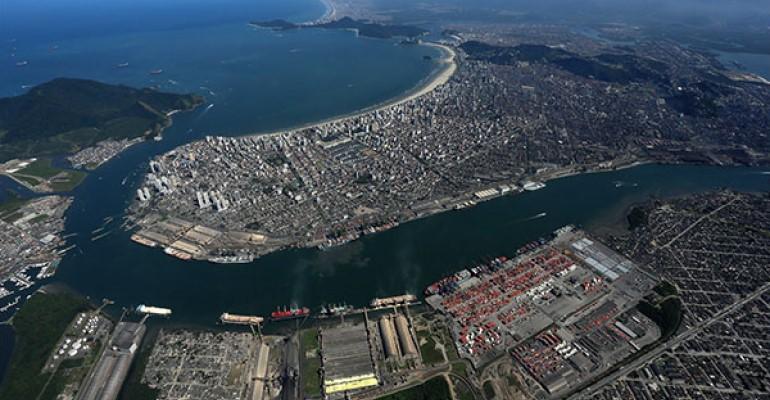Recent regulatory changes to promote cabotage in Brazil present a great opportunity to create cleaner maritime infrastructure, according to IICT.
A working paper from the International Council on Clean Transportation (ICCT) looked at Brazil’s recently-adopted “BR do Mar” initiative which aims to incentivise freight away from road transportation to coastal maritime transportation or cabotage.
Around 80% of Brazil’s population lives near to the coast of the continent-scale country, but cabotage accounts for just 11% of cargo tonne-miles in the country. “Despite its modest increase in recent years, cabotage is considered the most competitive, safest, and least-polluting mode of cargo transport in the country (EPL & ONTL, 2021),” said the report.
BR do Mar aims to balance the transport sector away from road transport, reduce costs and bureaucracy around cabotage, increase vessel supply and chartering opportunities and encourage market competition. The targets are a 40% increase in the cabotage fleet in three yeas and 65% increase in container cargo transportation.
One wrinkle in that plan is that while a move to more cabotage would bring a reduction in overall national greenhouse gas (GHG) emissions, emissions from the coastal shipping sector could rise by 28% between 2020 and 2031. That would put Brazil’s costal shipping sector at odds with the decarbonisation targets set globally by the International Maritime Organization (IMO).
“To ensure that an increase in cabotage does not increase shipping emissions, Brazil should consider government policies to encourage the use of low and zero life-cycle emission fuels, as well as on-shore power,” said the report.
The BR do Mar project will require investment in infrastructure regardless of the technologies deployed, but ICCT sees an opportunity to future-proof and green the sector by investing in efficient and clean maritime infrastructure.
“The expected investments in maritime infrastructure that will be spurred by BR do Mar could be focused on developing bunkering facilities for alternative and low-emission fuels that have low or zero life-cycle emissions, building modern and efficient ships, and investing in cleaner port infrastructure, including shore power,” said the report.
The scale of the transition is such that private entities will not be able to succeed alone, and so the ICCT called for the government to support and stimulate conditions that make an attractive investment environment.
The full ICCT working paper is available to download from the ICCT website.
Source: Seatrade Maritime News





